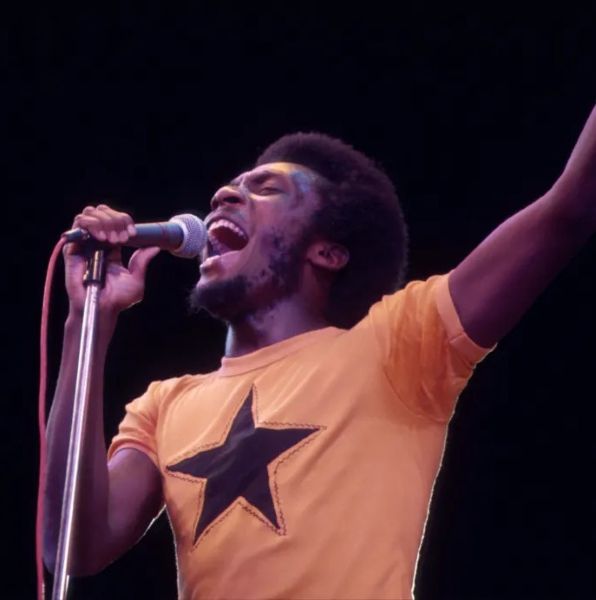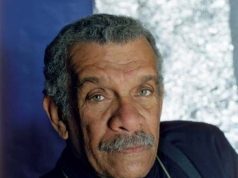

Jimmy Cliff, the beloved Jamaican reggae singer who helped popularize the genre around the world with songs like “You Can Get It If You Really Want” and “The Harder They Come,” has died at 81. Marc Savage reports for BBC News. See excerpts from Savage’s excellent article here. [Also see a video with a selection of key statements by the late singer by Chevaz Clarke at The New York Times.]
Jimmy Cliff, one of the most prominent and beloved proponents of reggae music, has died at the age of 81. A star since the 1960s, he helped to bring the sound of Jamaica to a global audience through hits such as “Wonderful World,” “Beautiful People” and “You Can Get It If You Really Want.”
His lead role as a gun-toting rebel in the 1972 crime drama The Harder They Come is a cornerstone of Jamaican cinema and was attributed as the movie that brought reggae to America.
Cliff’s wife, Latifa Chambers, announced his death via a statement on Instagram. “It’s with profound sadness that I share that my husband, Jimmy Cliff, has crossed over due to a seizure followed by pneumonia,” she wrote. [. . .]
Born James Chambers in 1944, Cliff grew up as the eighth of nine children in abject poverty in the parish of St. James, Jamaica. Blessed with a sweet, mellifluous voice, he began singing at his local church at the age of six.
He was inspired to write his own material when he heard ska pioneer Derrick Morgan on the radio – and asked his woodwork teacher how one might go about composing their own song. “He told me, ‘You just write it!’“ he told Mojo magazine. “So I went ahead and… wrote a song called ‘I Need A Fiancée,’ another called ‘Sob Sob,’ and I made a guitar out of bamboo to accompany myself.”
By the time he was 14, he’d moved to Kingston and adopted the surname Cliff to express the heights he intended on reaching. He recorded a handful of singles before topping the Jamaican charts with his own composition, “Hurricane Hattie.”
In 1965, he relocated to London to work with Island Records – later the home of Bob Marley – but the label’s attempts to make his sound palatable to rock audiences were initially unsuccessful.
He eventually struck gold with the 1969 single “Wonderful World, Beautiful People” – an upbeat, feelgood anthem; and the more politically-charged Vietnam, which Bob Dylan called “the best protest song ever written”. Its lyric tells the story of a young soldier who writes from the war, promising his mother he’ll be home soon; only for her to receive a telegram the next day, informing her of his death.
Cliff reflected on the song in 1986, telling reggae archivist Roger Steffens: “The essence of my music is struggle. What gives it the icing is the hope of love.”
The musician became an international star with “The Harder They Come,” expressly written for the movie of the same name, in which he played Ivan Martin, a young man trying to break into Jamaica’s corrupt music industry. “The film opened the door for Jamaica,” Cliff recalled. “It said, ‘This is where this music comes from.’”
Cliff contributed four songs to the soundtrack, including the gospel hymn “Many Rivers To Cross,” which reflected his early days as a struggling artist in the UK. “I was still in my teens,” he later recalled. “I came full of vigour: I’m going to make it, I’m going to be up there with the Beatles and the Stones. [. . .] And it wasn’t really going like that, I was touring clubs, not breaking through. I was struggling, with work, life, my identity. I couldn’t find my place. Frustration fuelled the song.”
Instead, the film and its soundtrack won him international acclaim. Rolling Stone magazine even named it one of their top 500 albums of all time.
During the 1980s, he collaborated with the Rolling Stones on their Dirty Work album, and he returned to the US charts in 1993 with his cover of “I Can See Clearly Now,” from the soundtrack for Cool Runnings, which followed the escapades of Jamaica’s bobsled team. His other recordings included the Grammy Award-winning albums Cliff Hanger (1985) and Rebirth (2012), a nostalgic return to form.
Cliff entered the Rock and Roll Hall of Fame in 2010, calling it “a great thrill and an honour”. Inducting him, Fugees star Wyclef Jean said he’d been inspired by Cliff’s success as a young boy growing up in Haiti.
“When we saw Jimmy Cliff, we saw ourselves,” he said. [. . .]
For full article and related photos, see https://www.bbc.com/news/articles/cj4qdren425o
Jimmy Cliff, the beloved Jamaican reggae singer who helped popularize the genre around the world with songs like “You Can Get It If You Really Want” and “The Harder They Come,” has died at 81. Marc Savage reports for BBC News. See excerpts from Savage’s excellent article here. [Also see a video with a selection




